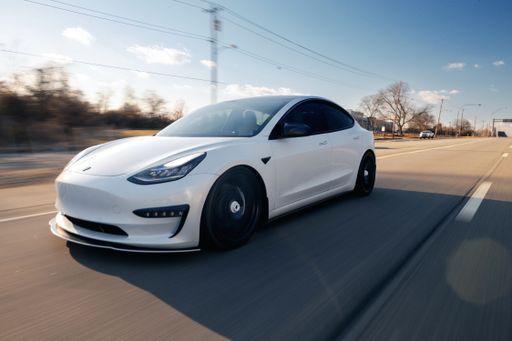Hertz Selling Off Teslas as It Reduces Its EV Fleet and the Implications on the Market
Hertz Global Holdings is selling about 20,000 EVs, including a substantial number of Teslas, from its U.S. fleet. This decision signifies a notable pivot in Hertz's approach to electric mobility and has implications for the broader EV market.

Hertz Reducing EVs in Fleet
Hertz Global Holdings, a major player in the vehicle rental industry, recently announced a significant change in its electric vehicle strategy. The company is selling about 20,000 EVs, including a substantial number of Teslas, from its U.S. fleet. This decision, made just two years after their initial partnership with Tesla, signifies a notable pivot in Hertz's approach to electric mobility and has implications for the broader EV market, particularly for Tesla.
The move by Hertz is believed to be a response to a cooling demand in the electric vehicle sector. It's a trend that is not isolated to Hertz but resonates across the industry. Automakers such as General Motors and Ford are revising their EV production plans due to this slowdown in sales growth. However, before the UAW saw the big three give major wage hikes, EVs were ramping up across the automotive sector.
Financial Impact and Market Perception of Tesla
The decision by Hertz to reduce its Tesla fleet has significant financial implications. Firstly, thousands of used Teslas are flooding the market, driving down the resale value. Second, since the announcement, Tesla’s stock has been declining.
The factors influencing Hertz's decision to sell off its Tesla fleet indicate the broader challenges the EV industry faces. The company claims that higher expenses related to collisions and damages for EVs have been a significant concern. This issue has led Hertz to shift its focus away from its initial goal of electrifying a substantial portion of its fleet. How this affects Tesla’s rumored in-house Rental Program is anyone’s guess at this point.
Tesla doesn’t do much advertising, but Hertz certainly does. The Hertz advertising campaign featured 7-time Super Bowl Champion Tom Brady behind the wheel of a Model 3. When the G.O.A.T endorses a brand, millions listen. However, this was not utilized as part of what could’ve been a parallel marketing campaign by Tesla. Brady was even quoted as saying: “I've been driving an EV for years, and knowing Hertz is leading the way with their electric fleet speaks to how the world is changing and the way companies are approaching being environmentally and socially conscious.”
The Future of Tesla in the EV Landscape
The recent move by Hertz to sell a large portion of its electric fleet, particularly Teslas, signals a complex period for the EV market. It raises questions about Hertz’ transition to electric and the role of companies like Tesla in shaping its future. Tesla is the sector's pioneer and has been at the forefront of the EV industry, pushing boundaries with its innovative technology and design. However, as some manufacturers mysteriously shift away from electric (right after the big three settled labor strife), Tesla will continue to navigate these changes while maintaining its leadership position.
One of the significant challenges for Tesla in this evolving market is balancing innovation with operational and financial sustainability. The company needs to address the concerns highlighted by Hertz's decision, such as the higher costs associated with EV maintenance and repairs. Additionally, Tesla must continue to innovate in areas like battery technology, charging infrastructure, and autonomous driving to stay ahead of the competition.
The perceived cooling demand for EVs also allows Tesla to reassess its market strategy. This could involve exploring new segments, enhancing customer engagement, and further improving the affordability and accessibility of its vehicles. Tesla's response to these market dynamics will be crucial in defining its future trajectory in the EV industry.

